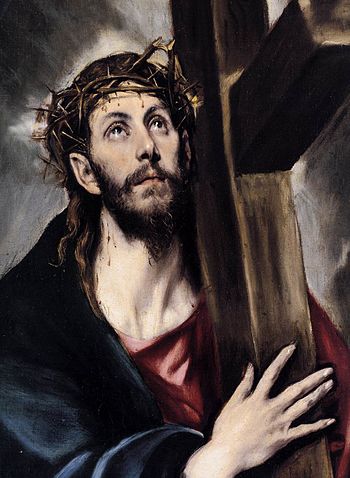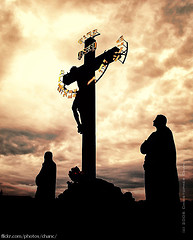As a father of two boys, I can sympathize with those who face the never ending battle of trying to keep a clean house. No sooner have I vacuumed the floor that one of my boys starts jumping on the sofa and knocks down a leftover bowl of cereal. Or I just finish cleaning a room and they dump a bin of legos on the floor and start building. On Catholic Exchange, Sam Guzman relates the experience of keeping a clean house to keeping a clean soul in his article:
At any rate, I’ve noticed that, just as a clean house quickly descends into disorder and must be constantly cleaned, so also our souls need constant care and upkeep. We must always be beginning to put them in order again.
There are days when our children have made such a mess of things that cleaning up seems a hopeless task. My wife and I look at each other and don’t know whether to laugh or cry. Yet, we begin again.
In this life, holiness is found in beginning again and again. It is constant examination and conversion and regeneration of heart. Holiness if found in repentance. And repentance is not merely feeling sorry that you sinned. It is rather a re-turning to God—a thousand times a day if necessary.

I call this never ending practice of conversion spiritual persistence. Spiritual persistence is continuing to pray and have faith in God’s plan even when it seems fruitless. When I pray the rosary and ask God for help building my spiritual persistence I meditate on Jesus carrying the cross in The Fourth Sorrowful Mystery. Jesus was literally beaten down carrying the cross with no hope for relief. Each time he fell down and got back up, he only had more cruelty and torture to look forward to. And yet, Jesus got back up and began walking again towards his crucifixion.
I think we all have moments when we ask ourselves, “what’s the point?” Why should I suffer for doing the right thing instead of taking ethical or moral shortcuts? Why should I fast? Why should I go to Sunday Mass? Why should I go to Confession? What good will these do since I’ll just go about sinning again in the future anyway?

Sometimes we can see our faith more as a cross than a blessing. We too often focus on what we give up or the effort required and not the benefits. Part of the challenge is that the sacrifice we feel immediately while the joy and grace are often delayed or is so subtle we don’t feel it. As an analogy to keeping a clean house, we so often tend to dread the steps needed to make a house clean that it often overshadows the joy of having a clean house.
This is where meditating on the fourth sorrowful mystery of the rosary becomes important. It puts all these perceived inconveniences into perspective. Jesus endured far worse doing his father’s will. If Jesus saw the importance of his Passion, we should ask God to help us see the importance of trying to live a spiritually healthy lifestyle. We may not always like housework, but we understand the importance of maintaining a clean house. And we may not always enjoy the obligations our faith puts on us, but we pray the rosary to understand why it is so important that we follow God’s plan.
As we near the end of Lent, many of us probably feel beaten down and tired. We may be tired of fasting, abstaining from meat, the increased prayer, etc. But instead of focusing on pain, let’s ask God to help us see the joy that comes from these Lenten practices. The joy that comes from letting go of some of our worldly pleasures and replacing them with God’s grace. The joy in understanding that we will one day find true happiness in Heaven due to our spiritual persistence in this lifetime.







